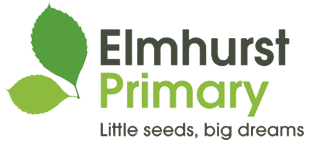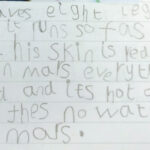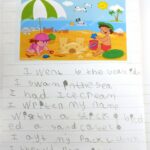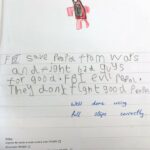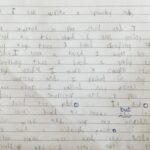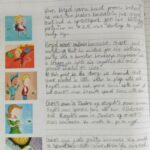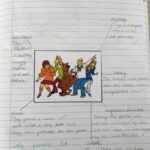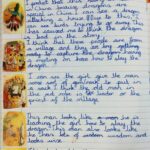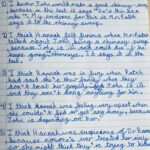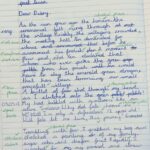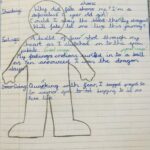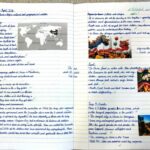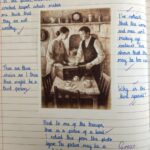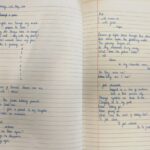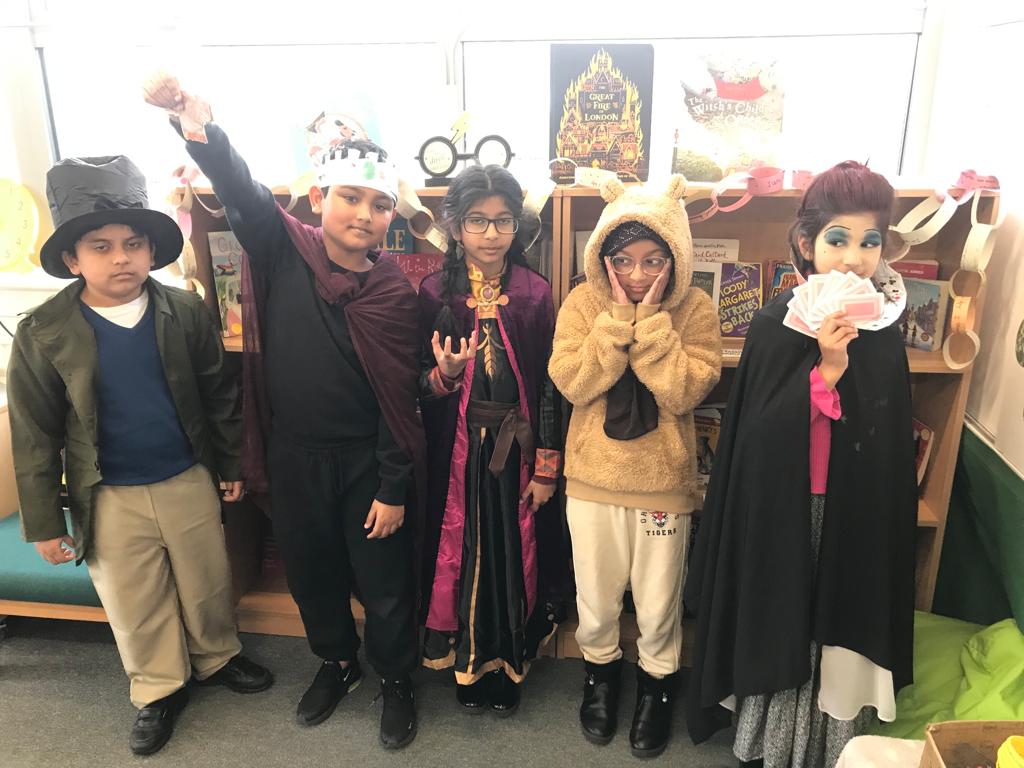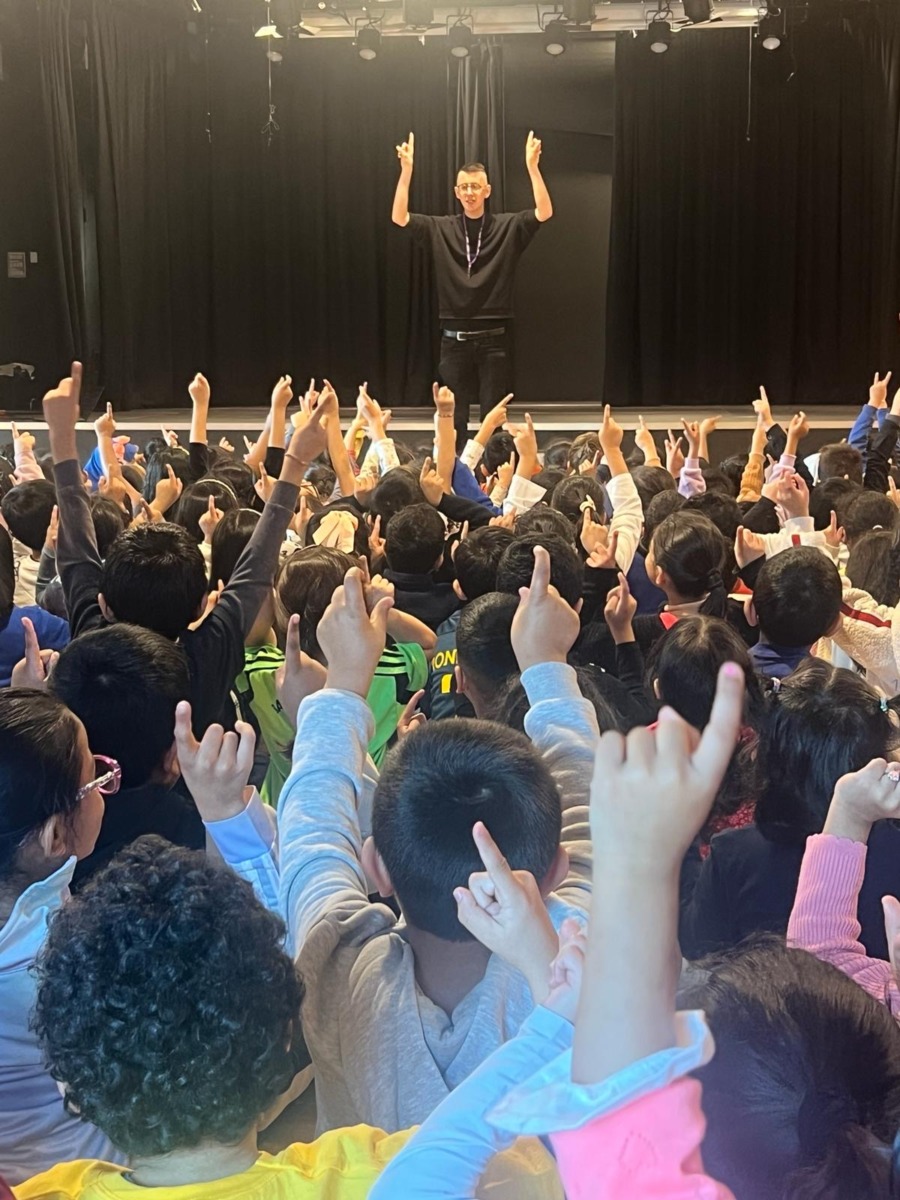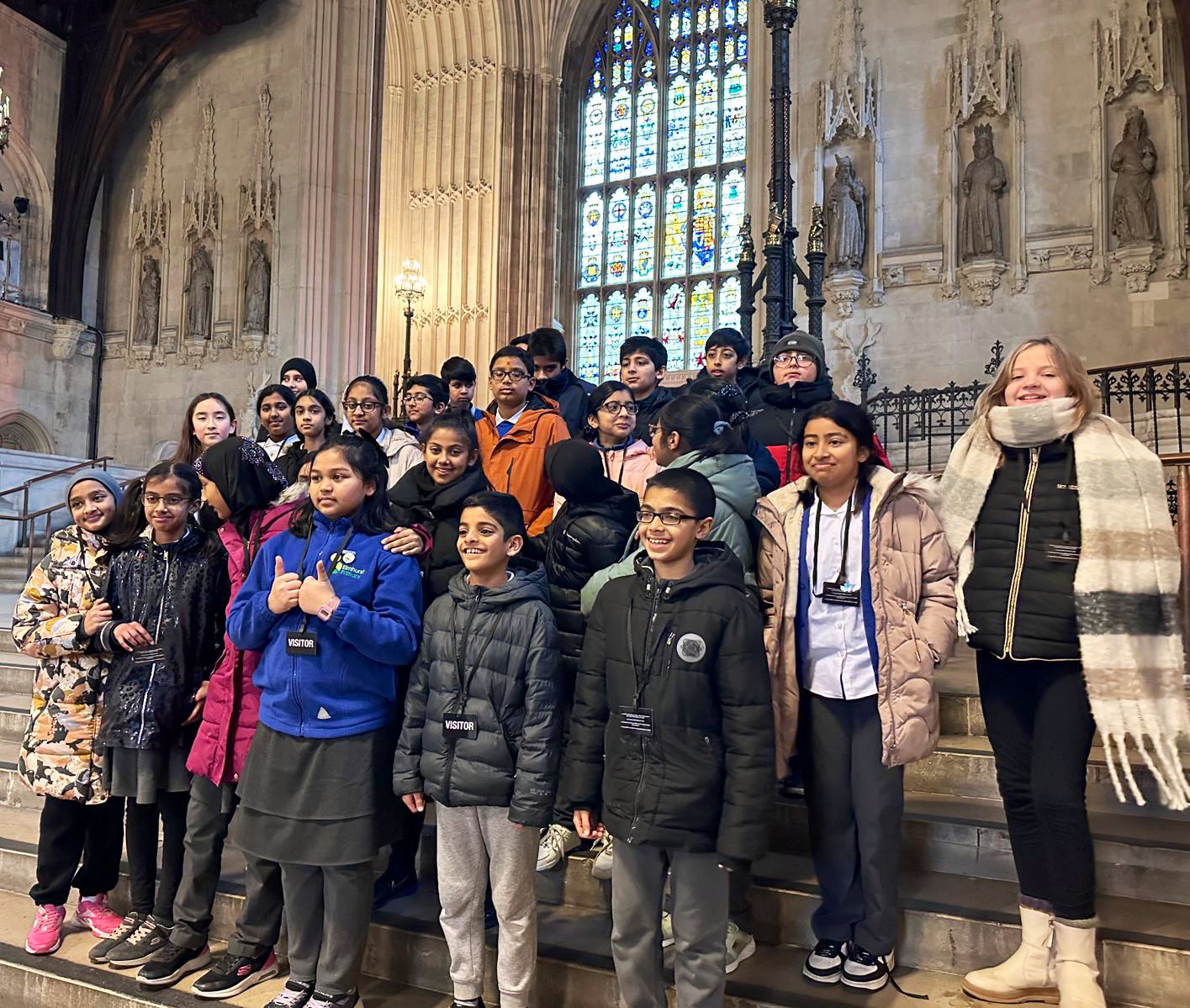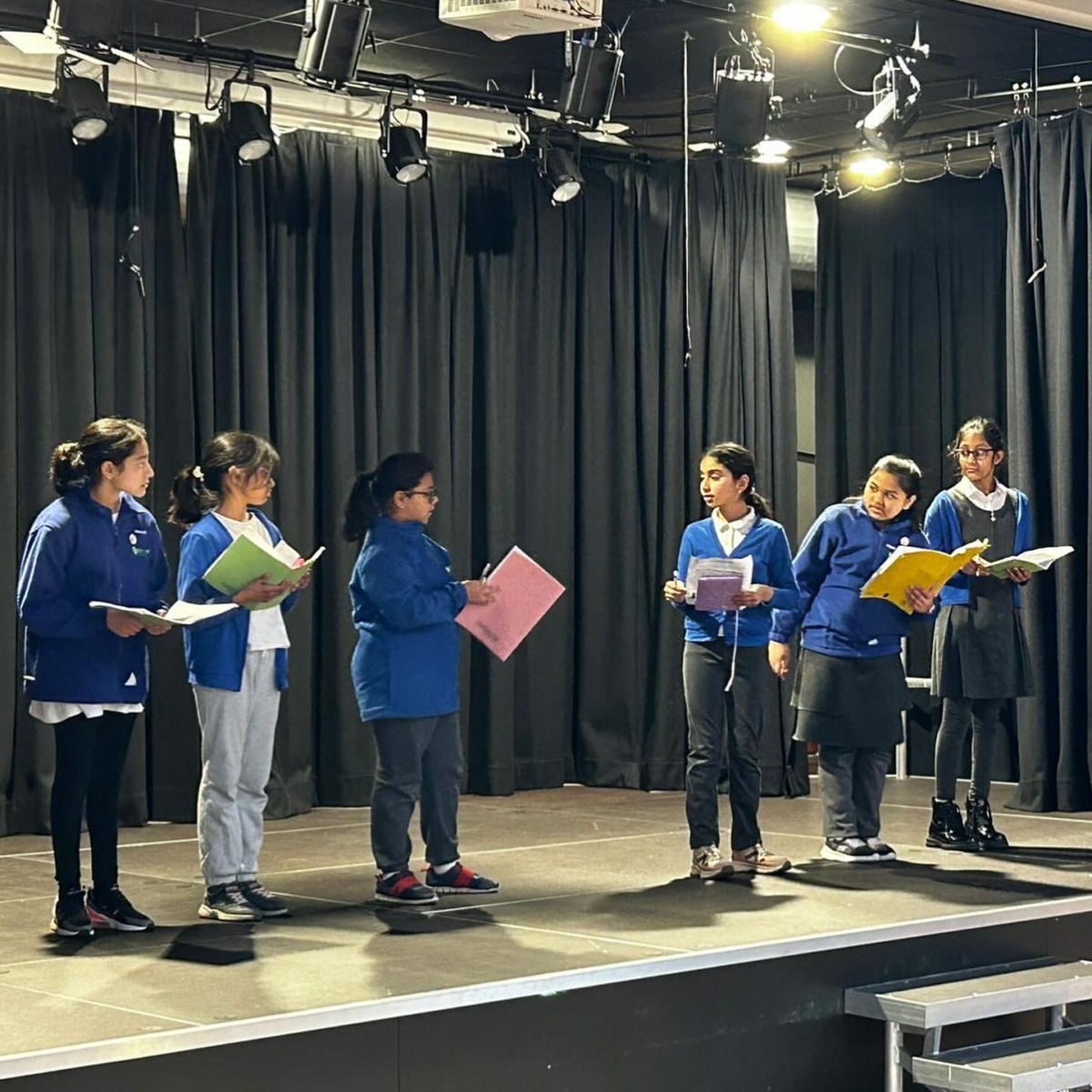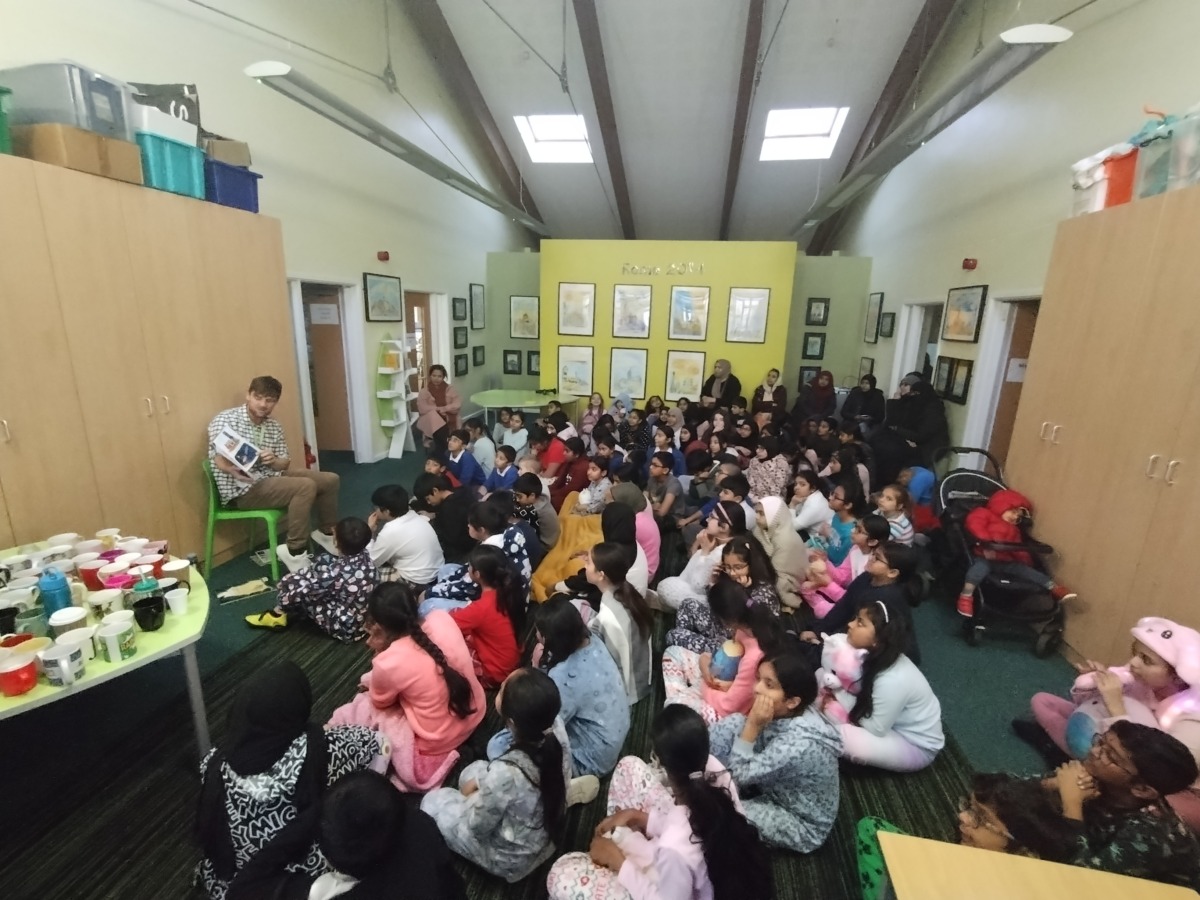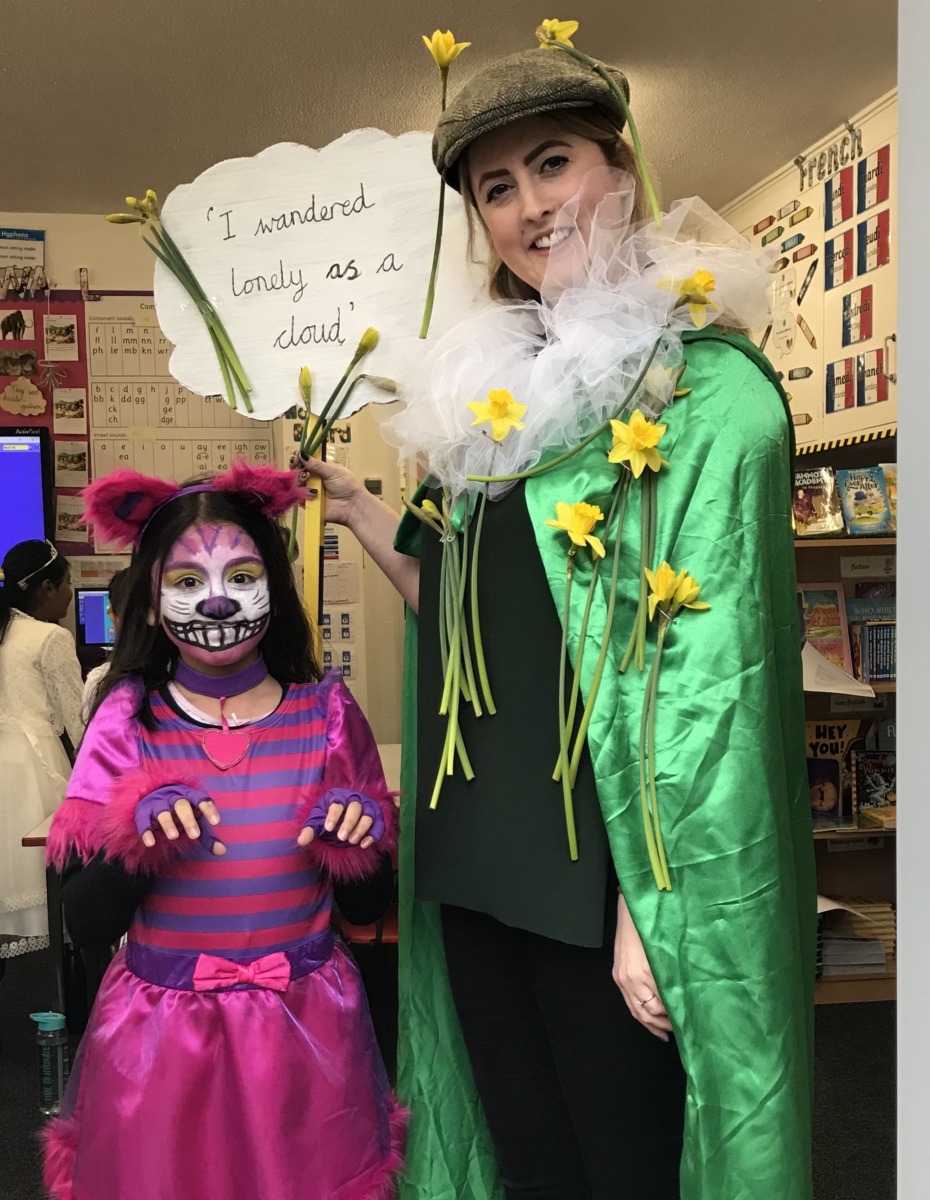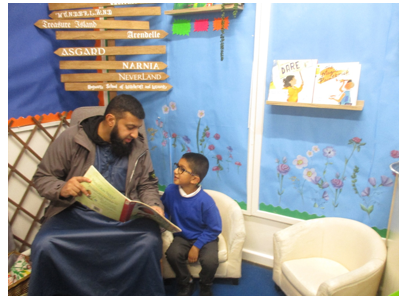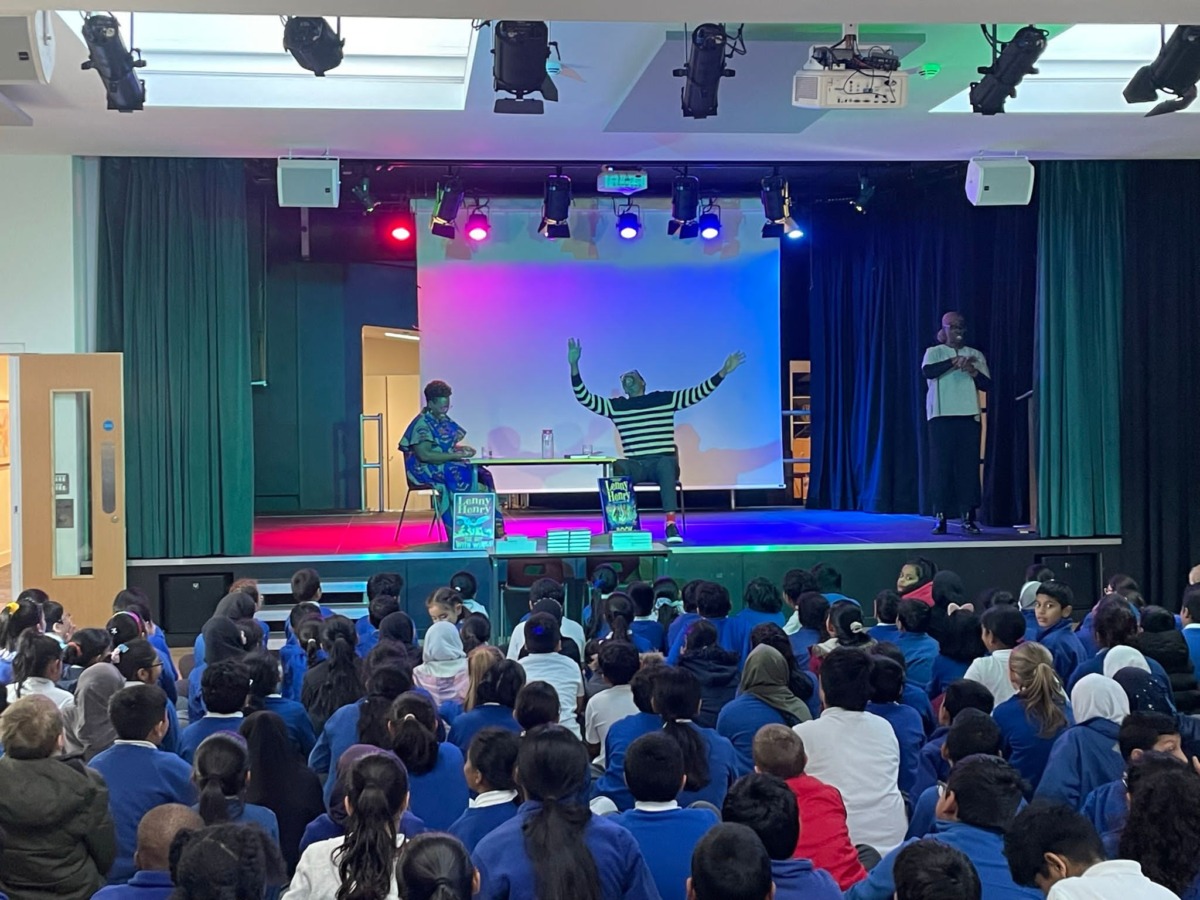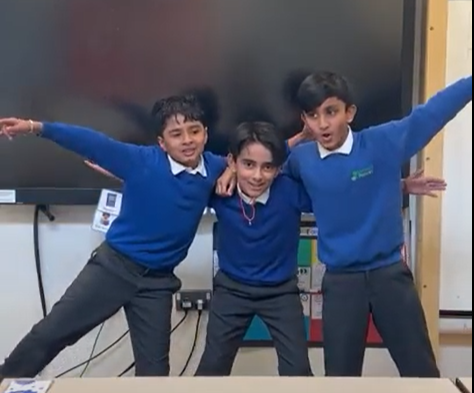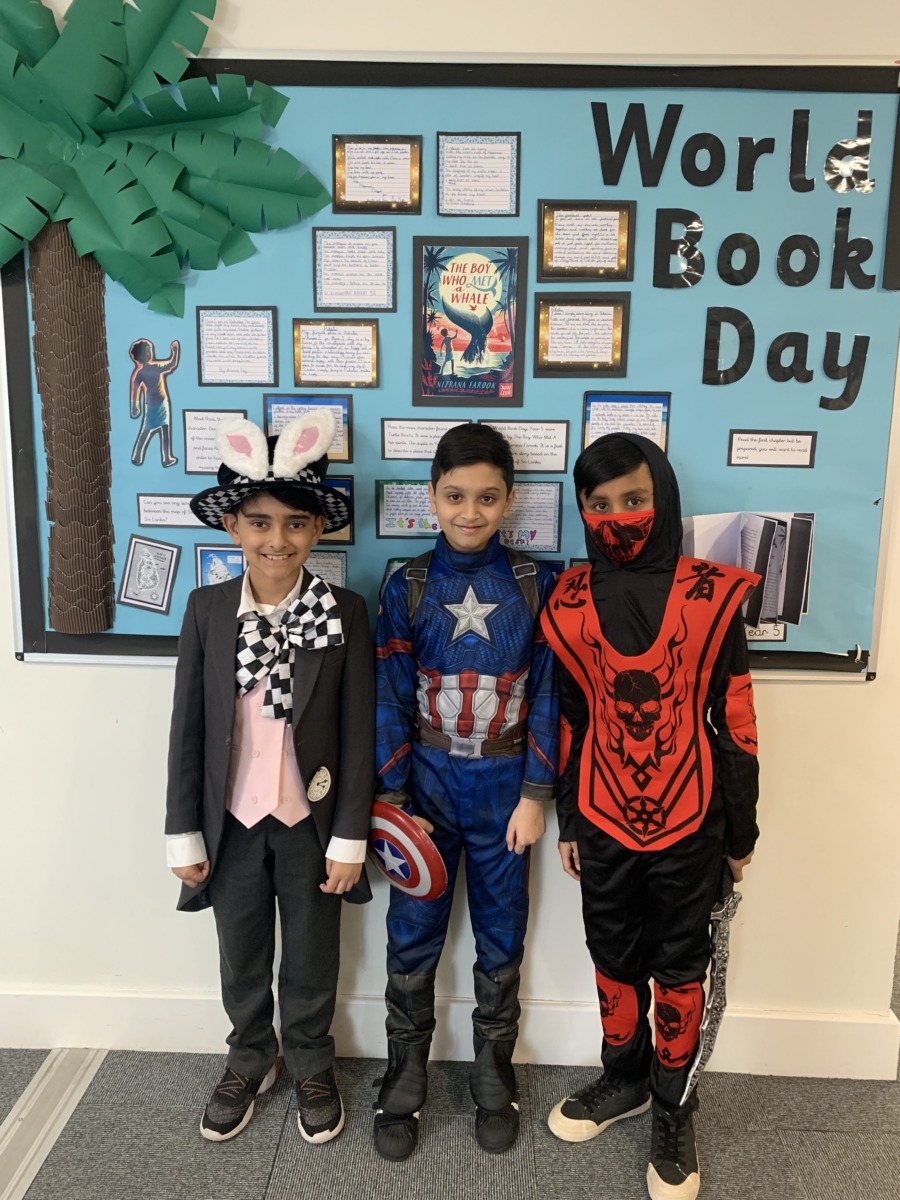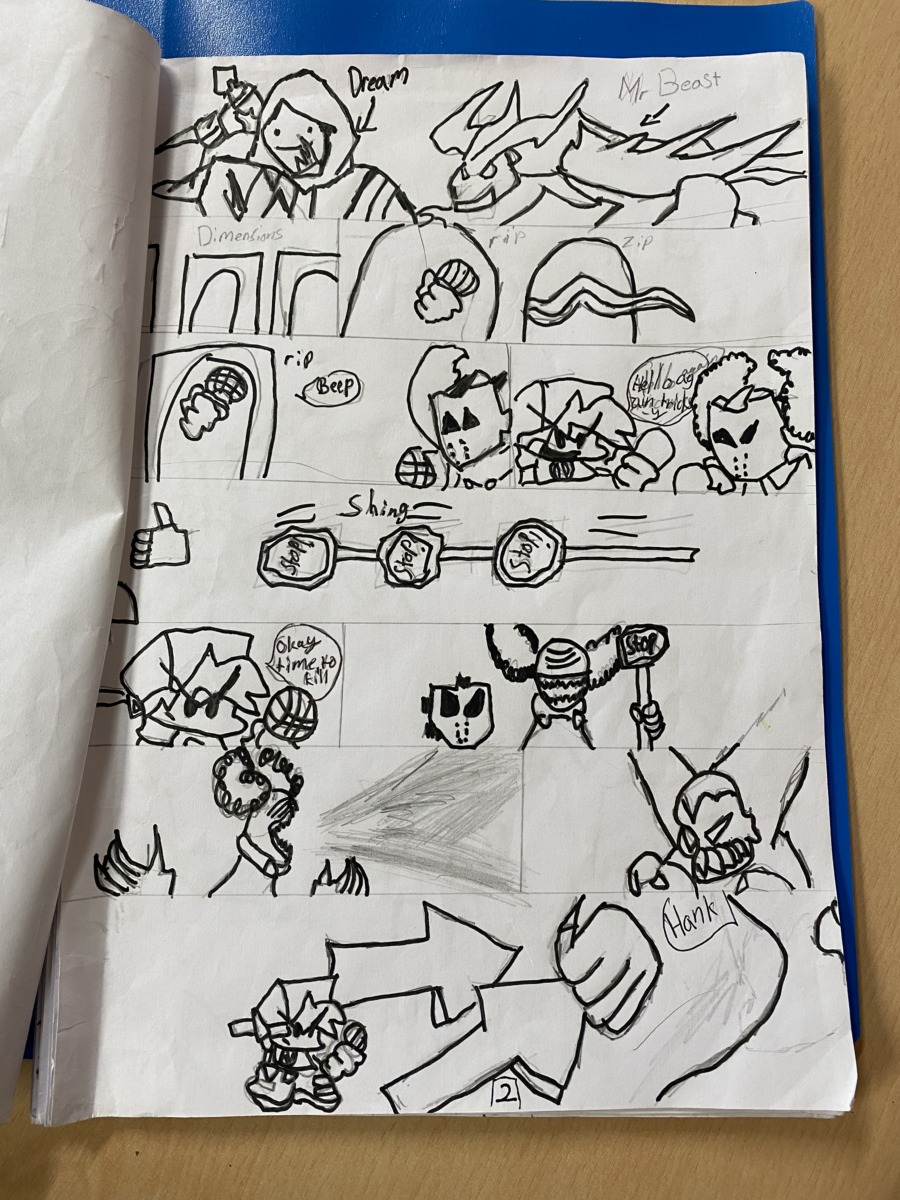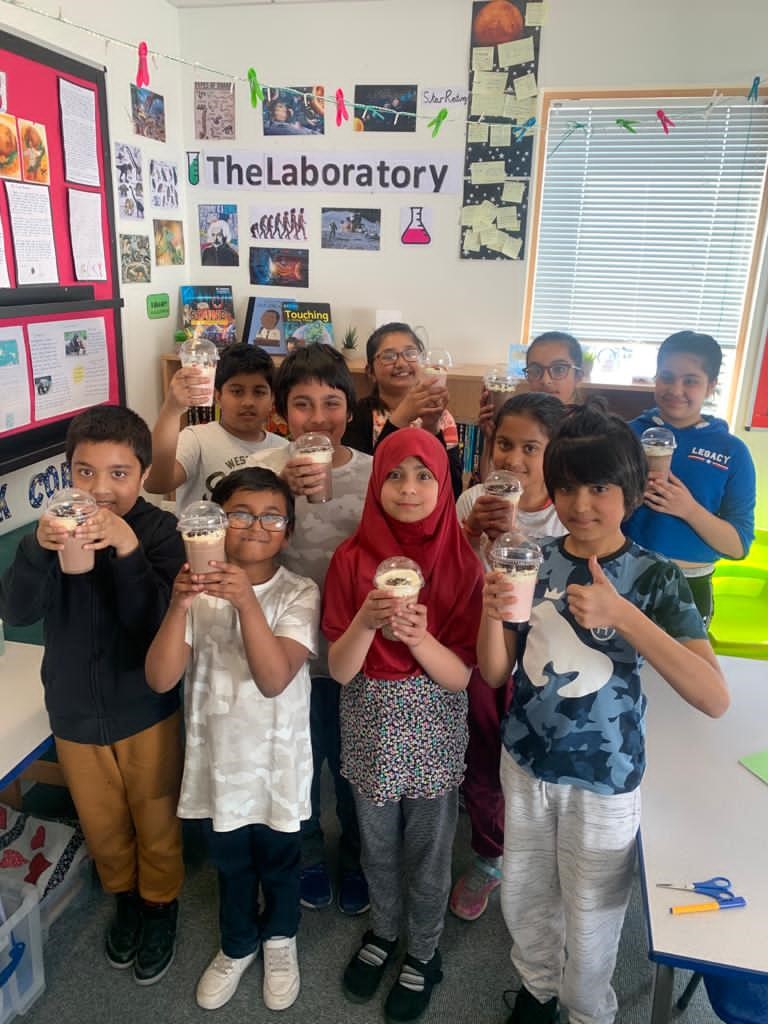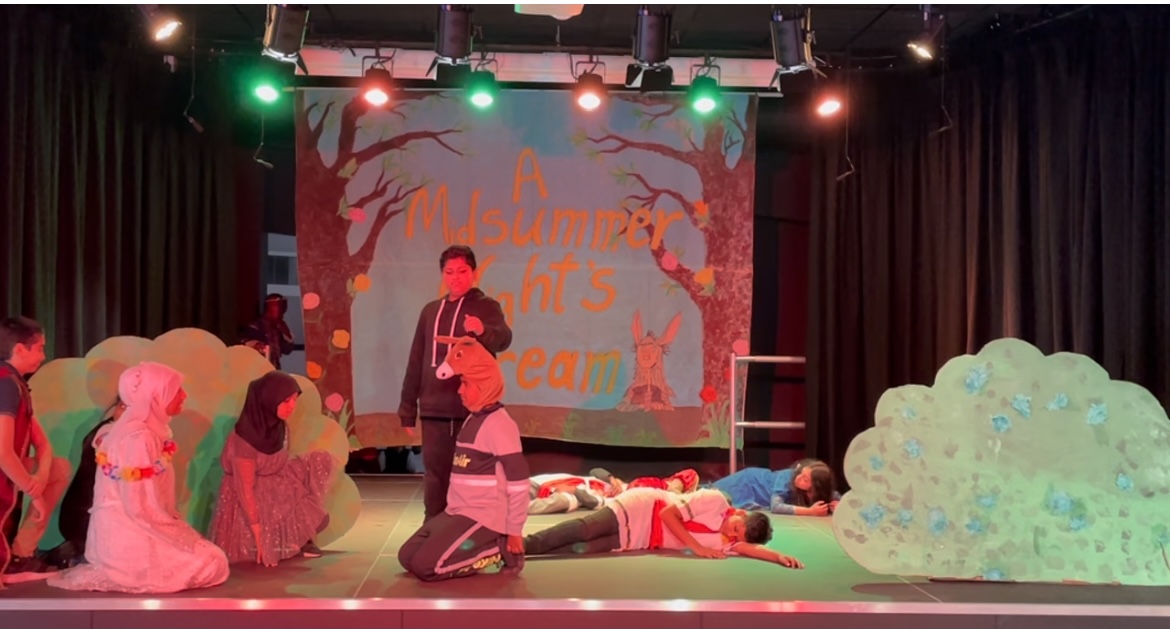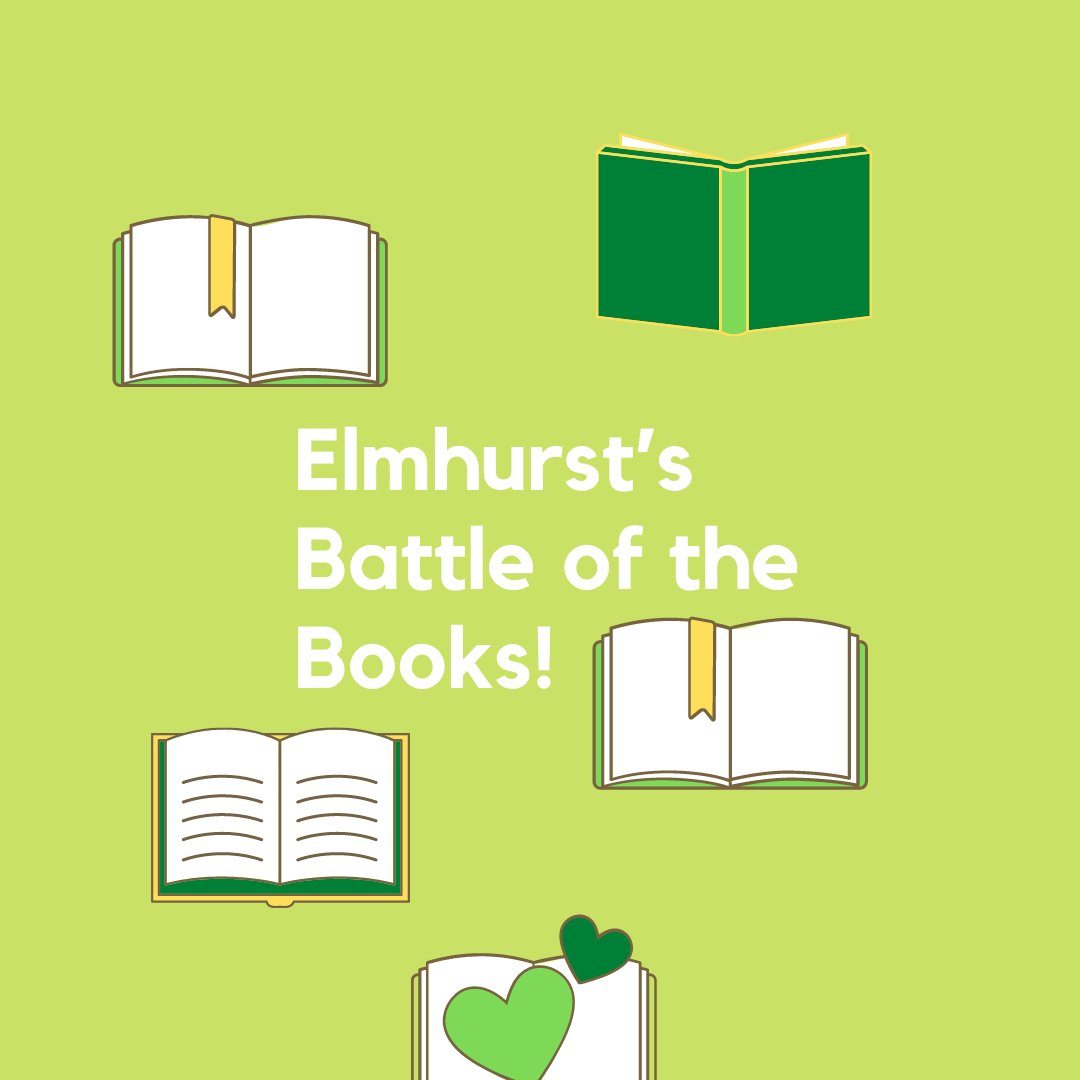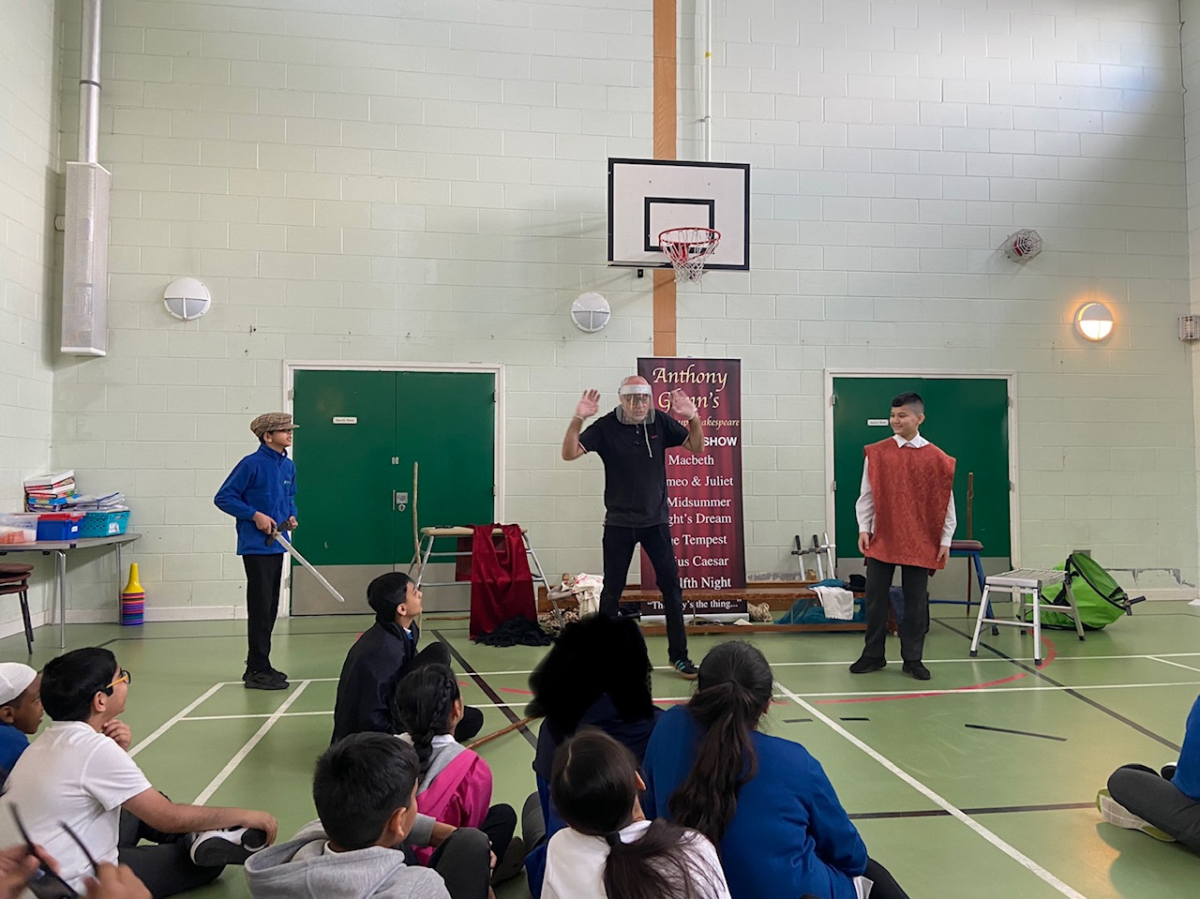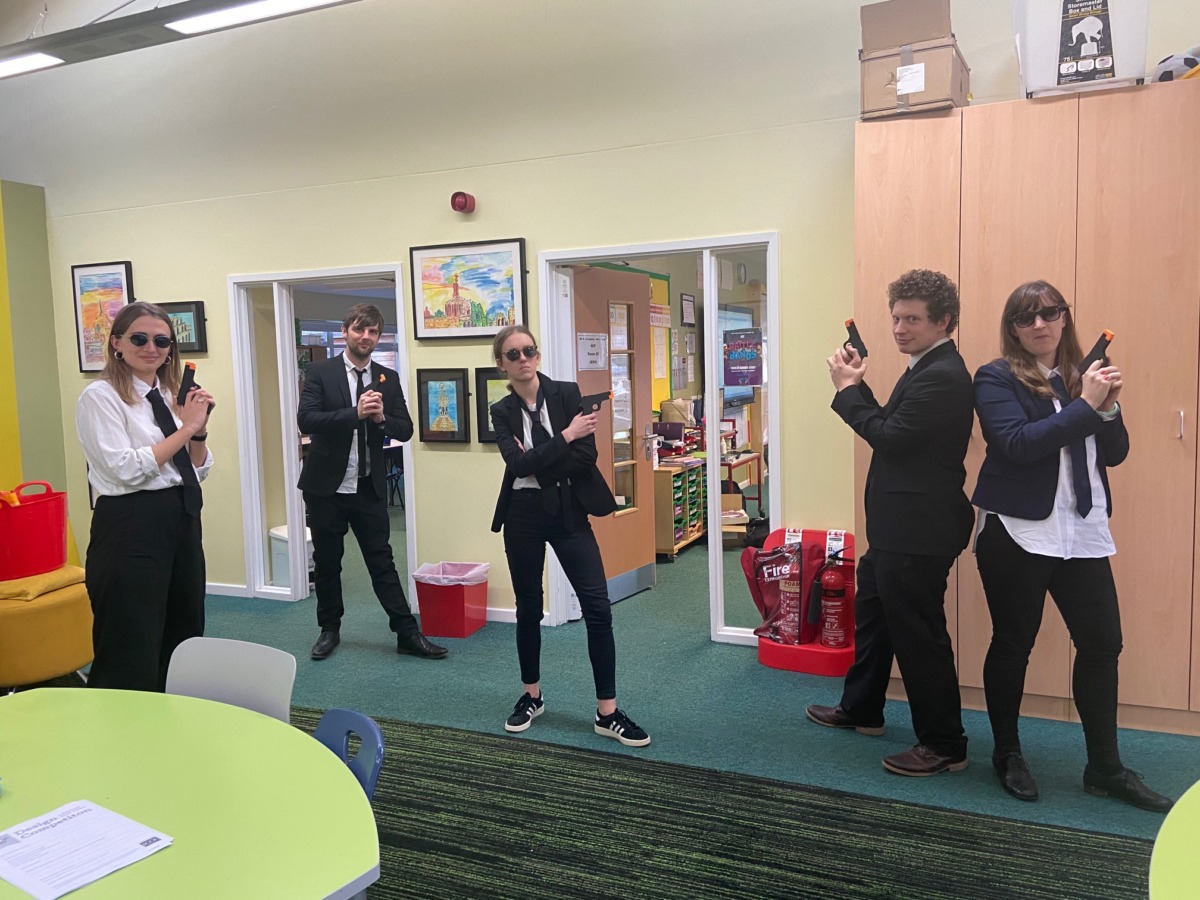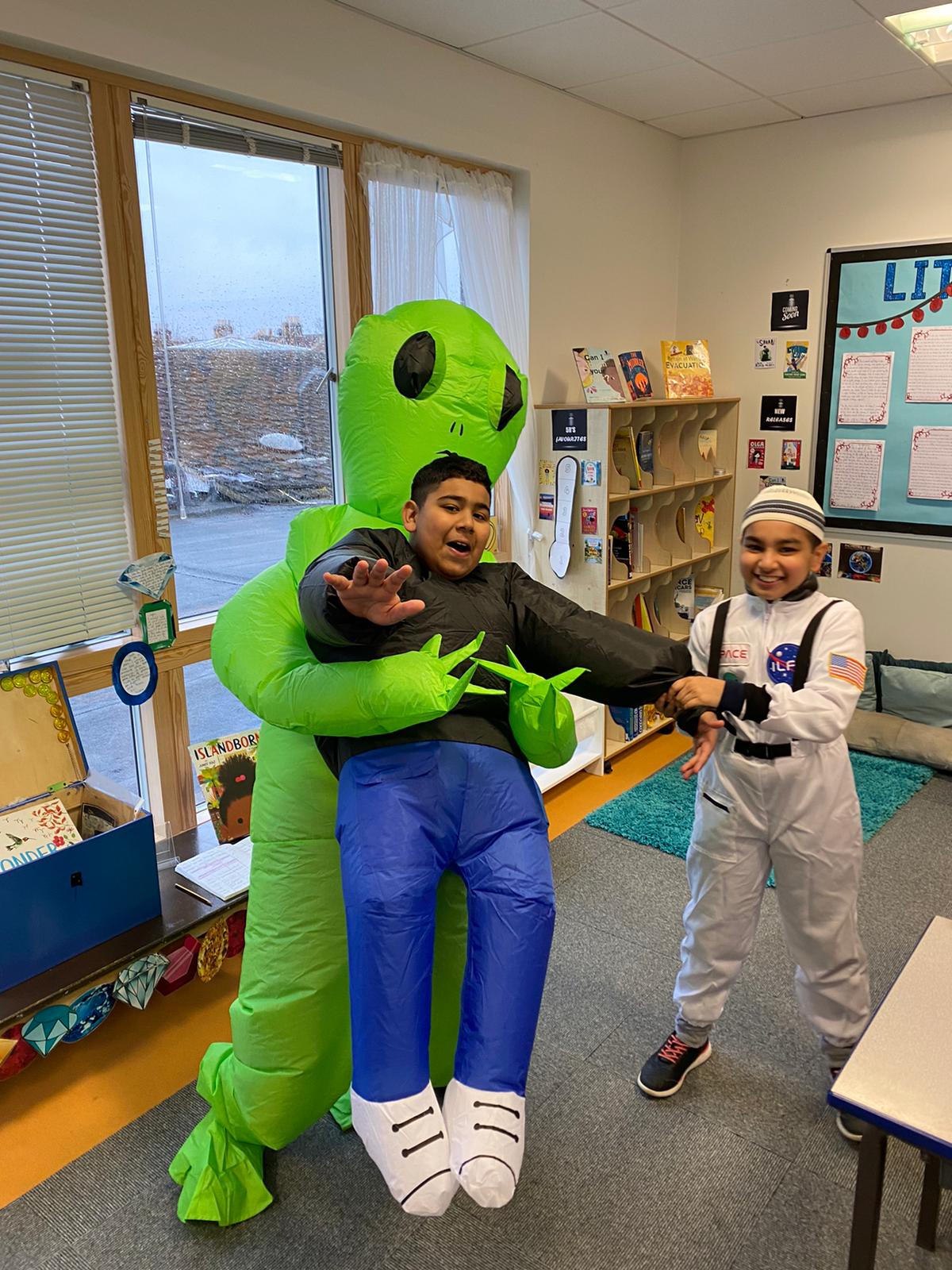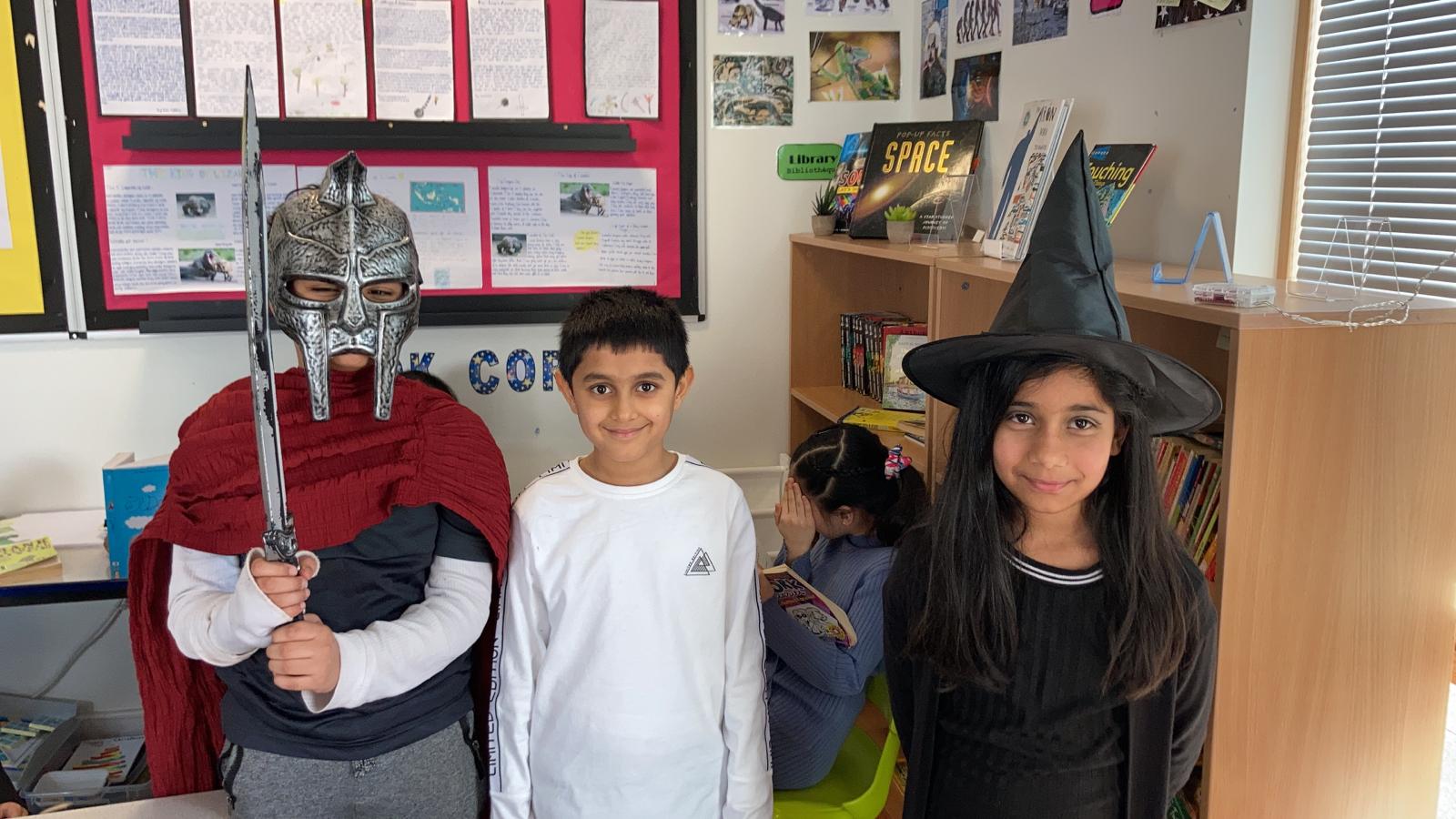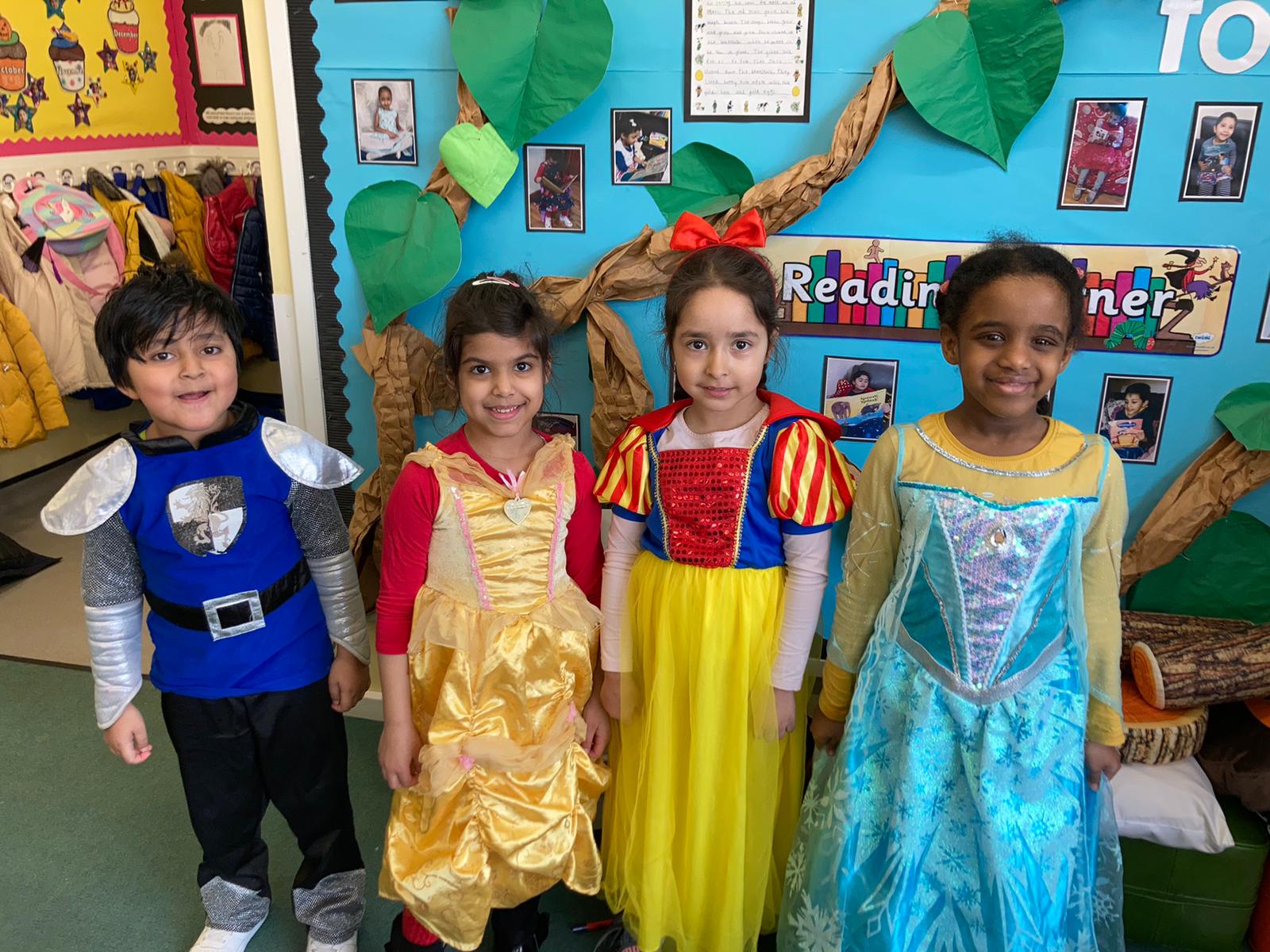At Elmhurst we believe that the best way to ensure that pupils do well in English is to ensure that they become life-long engaged readers.
Children and staff at Elmhurst are enthusiastic readers and we endeavour to foster a love and passion for reading in our children from the outset. To this end, we hold a variety of whole school events throughout the year to encourage and develop the passion for reading. We also ensure that teachers make regular recommendations to pupils to encourage reading for pleasure. Pupils also have a chance to talk to their teachers regularly about their reading habits, as part of our termly Reading Surveys.
We are a model school for RWI Phonics, and we receive many visitors each year.
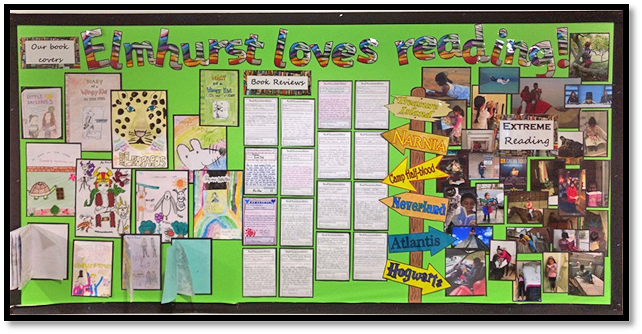
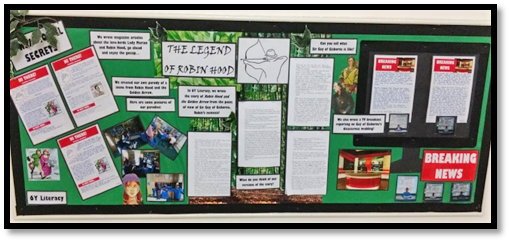 |
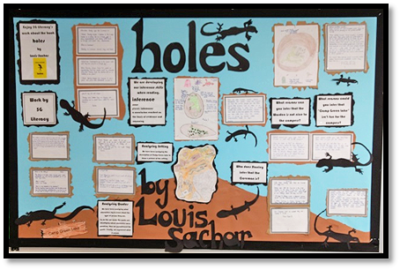 |
Literacy Programme of Study:
Early reading and early language development:
As stated in the Early Reading Framework (2021), becoming a fluent reader begins at the earliest stages, before children even encounter a book, through the quality of their parents’ talk and the subsequent development of their vocabulary. We therefore prioritise high quality talk in Early Years and Key Stage 1 through a number of schemes/approaches:
- Dialogic reading (or contingent talk) is a form of shared reading that encourages adults to share the reading process with their child. The book is a prompt for discussion and the talk is child-led (the child is the “boss of the book”). The adult helps the child to become the storyteller, acting as the listener, questioner and audience for the child. The adult encourages the child’s participation, providing feedback and adjusting verbal interactions. We carry out this intervention in Nursery and Reception with target children.
- NELI (Nuffield Early Language Intervention) is an intervention designed to improve listening, narrative and vocabulary skills for target children (identified through an assessment of the entire year group). It is a 20 week intervention for Reception pupils, found to be highly effective by the EEF.
- Talk through stories: This programme, developed by Ruth Miskin and based on the research of Isabel Beck, is designed to extend and develop pupils’ vocabulary. We use this in Year 1 and 2 to ensure that we are systematically teaching children vocabulary.
Systematic synthetic phonics: Read Write Inc (RWI)
At Elmhurst we follow the RWI phonics programme and have been an RWI model school for over a decade. RWI is a complete phonics programme with high quality training, assessment, intervention and resources (including decodable books). We train all new members of staff in the RWI approach and provide ongoing training and support for existing teachers through practice sessions and coaching. We carry out intervention to support pupils to ‘keep up’ with the programme. Children’s early independent reading is exclusively reading the RWI fully decodable books, ensuring that children are only asked to read books with sounds that they know.
The Ruth Miskin Training Youtube channel has lots of helpful videos for parents to watch to help them to understand the programme and how it works. Here are a few of them:
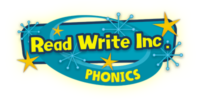
Once pupils can read accurately and fluently, they move on from the RWI programme and the related decodable books. We do not use ‘book bands’ for children who are able to decode accurately and fluently. Instead the teacher supports the child to choose a book that matches their interests and reading ability (e.g. suitable length, appropriate themes etc).
Reading for pleasure:
Watch what some of our pupils (now ex-pupils) say about the reading culture at Elmhurst:
Reading for Pleasure remains a whole school priority. Reading enjoyment has been reported as more important for children’s educational success than their family’s socio-economic status (OECD, 2002). We believe that a whole school Reading for Pleasure culture must be ‘lived’ by all members of staff as well as being embedded into the school structures and routines. It is everyone’s responsibility to promote and maintain enjoyment of reading.
Whole school story time takes place from 3:00 - 3:15pm every day. During this time the teacher should be reading to the children. When reading aloud, we do not stop unnecessarily to ask clarification/comprehension questions. Instead, we allow the story to weave its own magic, only pausing occasionally where necessary to define any important vocabulary. In Key Stage 1 teachers also read to children during fruit time.
Children should read during morning and afternoon registration. We encourage reading at home and support parents to understand how to read to/with their children. Teachers promote reading for pleasure through making recommendations and informal book talk; including by promoting the reading challenges in KS1 and Battle of the Books in KS2. Book corners are well used, ‘lived in’ spaces with a limited number of high quality texts that children are able to borrow. All children go to the school library weekly and to a local library on a termly basis.
Reading and Writing - separate subjects:
Once children can read accurately and fluently, we teach reading and writing as separate subjects. Teaching writing separately allows teachers and children to focus on the writing processes and writing skills and allows pupils the freedom to use their own ideas without being constrained by the text they are reading. It prevents writing outcomes from being solely a response to reading and instead allows pupils the freedom to develop and use their own ideas without being overly constrained by the text they are reading.
Reading:
From October 2021, we are using the Take One Book reading programme created by Just Imagine. We have adopted this scheme as it is based on real children’s literature and teaches comprehension (and grammar) explicitly in relation to these high quality texts.
The Take One Book units all have the following structure:
- Hook - to engage the children ahead of introducing the text
- Orientation - to activate prior knowledge, build background knowledge and introduce key vocabulary
- First encounters - includes reading the text, exploring ideas, checking understanding and exposing thinking
- Digging deeper - refining a response and expanding thinking
- Review and reflect - including discussing the relevance of the book to the wider world
- Wider learning opportunities (this may run throughout the unit or at the end)
More information can be found about Take One Book here: https://www.takeonebook.org/
Writing:
From October 2021, we are following the Writing for Pleasure (WfP) pedagogical principles of Young and Ferguson. These include:
- Explicitly teaching the writing processes (how to generate an idea, plan, draft, revise, edit, publish)
- Teachers teach a mini lesson daily and children are invited to apply the principles of this mini lesson to their writing
- Children are given time to write every day
- Writing projects have a purpose and audience
- Children are given time to read, share, think and talk about writing
- Children have the opportunity to pursue personal writing projects
- Teachers carry out ‘pupil conferencing’ to support pupils to further develop their writing
More information can be found about the Writing for Pleasure pedagogy here: https://writing4pleasure.com/
Debating and Oracy:
Debating and oracy are a core part of our literacy offer at Elmhurst. We ensure that debating and oracy are built into our curriculum map for literacy. All pupils in Key Stage 2 study debating and speechmaking as separate writing units within the Writing curriculum.
Grammar:
Grammar is taught through the Take One Book reading scheme and through writing ‘mini lessons’. Required ‘mini lessons’ will be mapped out for each year group to ensure curriculum coverage. Where necessary, additional discrete grammar lessons may be taught to ensure full coverage of the grammar curriculum. Year groups are taught new content according to the Grammar Progression document, but regular revisiting of previous years' content is built into our grammar teaching. This ensures that pupils know and remember more of what they are taught.
Handwriting:
The Letterjoin handwriting scheme should be taught through explicit teaching from Summer Term in Year 1. Teachers are expected to model this cursive style on the board and in pupil books.
Speechmaking and Debating:
In Key Stage 2, each year group has a 3 week speechmaking and debating unit. These units use the WfP principles, allowing children to engage with speeches and write their own. Debating skills and techniques should continue to be used across all subjects. Staff are encouraged to plan for, and use, debating as a part of all curriculum subjects where opportunities arise.
Literacy - Intent Statement (from November 2021)
New Reading and Writing Curriculum Map 2021-22
Gallery
Latest News
